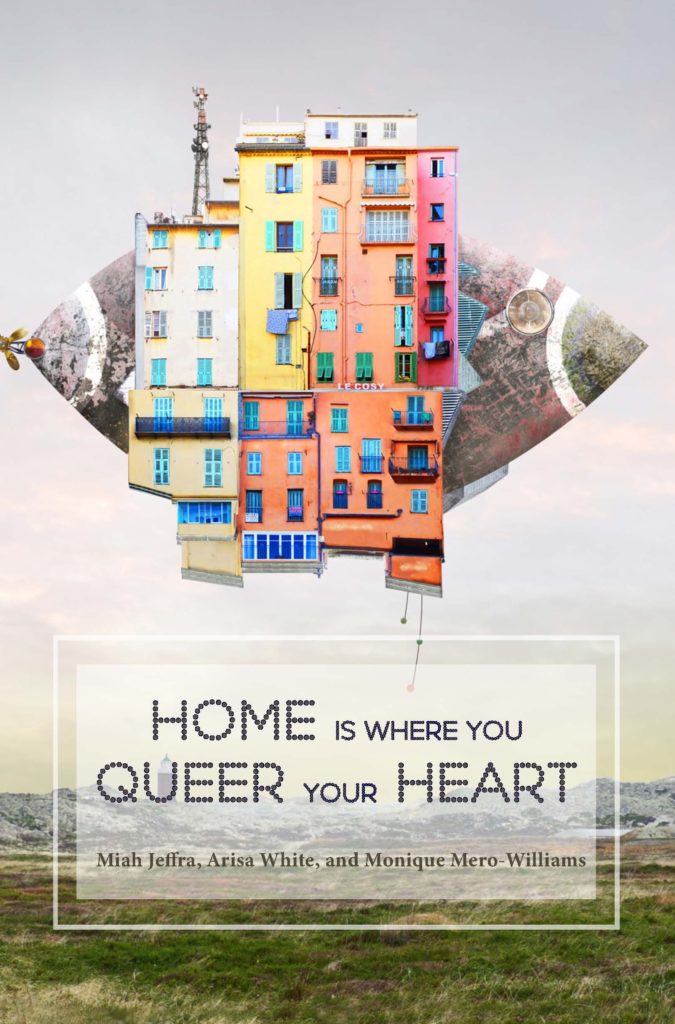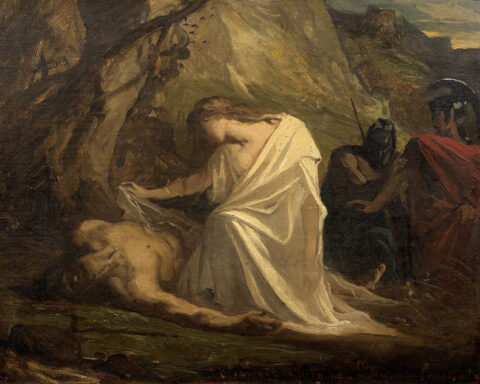
In our modern era of overt commercialism and shameless exploitation, queer culture is unfortunately represented through the harsh lens of an overwhelmingly capitalistic media. From rows of pride floats sponsored by banks and brands to studio executive’s inclusion of superficial queer characters to obtain a potential target audience, our market is littered with disingenuous LBGTQ+ representations and creates a frustrating atmosphere for those desperately seeking authentic queer art.
Though Foglifter Press’s anthology of queer literature Home is Where You Queer Your Heart, edited by Miah Jeffra, Arisa White, and Monique Mero-Williams, presents us with genuinely riveting and fiercely witty depictions of queer culture. Whether it be the mundane moments of life, the harsh presence of a constant melancholic turmoil, or the extravagant passions that drive our humanity forward, this anthology covers every facet of queer existence with grace and dignity.
The content of this collection is divided into the four cardinal directions, creating an elegant symmetry that balances the unique tones of all the varying pieces. The numerous texts range from a typical short story or flash fiction prose to endless creative takes on the poetic verse, yet occasionally writers emerge with innovative narrative modes that push the creative envelope. Two works that stood out to me were “& You Shall Know Me by My Lists” by Jubi Arriola-Headley and “Bus Roulette” by Luke Dai Blue, the former presenting a inner dialogue through detailed lists of likes and dislikes while the latter recounts the experiences of queer vagabonds through the description of a game. The unique delivery of such stories is vastly impactful and conveys emotions in a strangely alluring repressed fashion, an undoubtedly relatable feeling for most of the LGBTQ+ community. If one can invoke such raw emotions through the writing of lists and game instructions, a pure talent for storytelling is undeniable.
Despite the unique intrigue of certain pieces, the remaining work is presented in a more classically creative medium, either prose or verse, creating a seamless harmony between the diverse set of stories. A short story entitled “All These Cats Have Aids” was a hauntingly brilliant tale of societal rejection and the desperation that arises from such fierce stigmatization. The narrator is compelling and vivacious, representing a common consciousness that reverberates throughout the entire collection. While all the titles are distinctly exceptional in their own right, the art mingles together to create a familiar warmth that radiates off the page.
Home is Where You Queer Your Heart possesses an essence of classic Camp, originally described by American essayist Susan Sontag to be “the proper mixture of the exaggerated, the fantastic, the passionate, and the naïve.” Campiness oozes from the pages, acting as a celebration of the abrasive, self-aware, and the oddly soothing cascade of imperfect affection that has aided generations of LGBTQ+ individuals to heal and persevere. The anthology beautifully encapsulates the past, present, and future of queerness by embodying the tenacity of Zoe Leonard, the quirkiness of John Waters, and the grace of Tony Kushner.
An overwhelmingly powerful idea is subtly echoed throughout each piece: the concept of home, specifically for the queer community. Reflected in the title Home is Where You Queer Your Heart, many authors explore the hardships faced due to a pressure to conform to a traditional home, followed by the fear and shame that accompanies being rejected by conventional families. As legendary drag performer Pepper LaBeija said in the cult classic Paris is Burning, “When someone has rejection from their mother, their father, their family, they – when they get into the world – they search. They search for someone to fill that void.” This book has the power and potential to be home for a lot of people. Though the art within these pages attempts to do more than just fill a void, but rather completely reconstruct what the feeling of home means to queer people. The book’s short story “Homeward” by Cooper Lee Bombardier, a tale detailing modern struggles of isolation and connection, delivers a final impactful line that I truly believe reflects the creator’s message for readers: “I hope every single one of them felt like they were at home.”




